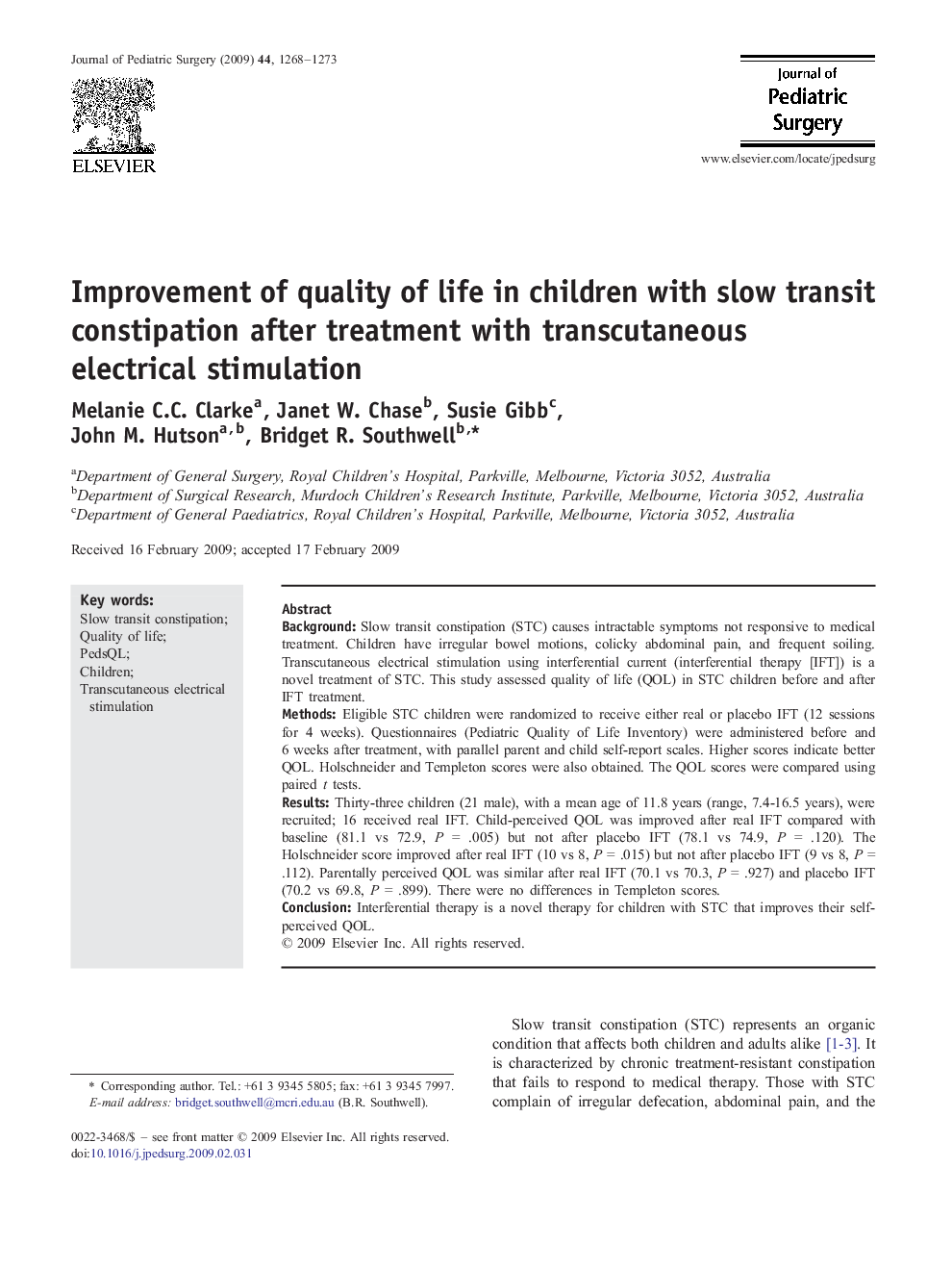| Article ID | Journal | Published Year | Pages | File Type |
|---|---|---|---|---|
| 4159500 | Journal of Pediatric Surgery | 2009 | 6 Pages |
BackgroundSlow transit constipation (STC) causes intractable symptoms not responsive to medical treatment. Children have irregular bowel motions, colicky abdominal pain, and frequent soiling. Transcutaneous electrical stimulation using interferential current (interferential therapy [IFT]) is a novel treatment of STC. This study assessed quality of life (QOL) in STC children before and after IFT treatment.MethodsEligible STC children were randomized to receive either real or placebo IFT (12 sessions for 4 weeks). Questionnaires (Pediatric Quality of Life Inventory) were administered before and 6 weeks after treatment, with parallel parent and child self-report scales. Higher scores indicate better QOL. Holschneider and Templeton scores were also obtained. The QOL scores were compared using paired t tests.ResultsThirty-three children (21 male), with a mean age of 11.8 years (range, 7.4-16.5 years), were recruited; 16 received real IFT. Child-perceived QOL was improved after real IFT compared with baseline (81.1 vs 72.9, P = .005) but not after placebo IFT (78.1 vs 74.9, P = .120). The Holschneider score improved after real IFT (10 vs 8, P = .015) but not after placebo IFT (9 vs 8, P = .112). Parentally perceived QOL was similar after real IFT (70.1 vs 70.3, P = .927) and placebo IFT (70.2 vs 69.8, P = .899). There were no differences in Templeton scores.ConclusionInterferential therapy is a novel therapy for children with STC that improves their self-perceived QOL.
